For over 300 years, wine has been sold in glass bottles stoppered with a bit of tree bark. With all the developments in technology in vineyard and winery, it is strange that the packaging of wine remains in a time warp.
Here we are in the 21st century and we are still selling wine in glass, which is heavy, and we are still demanding the customer buy five glasses in one go – the contents of a 750 ml. bottle. In these environmentally conscious days, it should be understood that most of the carbon footprint of wine stems from the production, packaging and transport of this glass. One of the problems is that wine consumers are incredibly conservative. They believe that “the wine I drink should come out with a glass bottle stoppered by a traditional cork.”
However we are not totally stuck in the mud. Suddenly canned wine has arrived. Not a flood but a trickle brought by enterprising entrepreneurs. Why cans? They are obvious options for millennials who feel they are not bound by the traditions of their upbringing. They are far more experimental with their drinking and are also far more likely to purchase products that are kinder to the environment than their parents. The can is lightweight, practical, easy to recycle, quick to cool and you don’t have to find the wretched bottle opener or know how to use it!
The can is also attractively priced. Here, they generally come in sizes of 250 ml., which equates to a glass and a half, and they are sold in packs of four. They are for drinking, not for tasting like a pro. By that I mean they are not wines to admire and talk about. The most successful wines to put in the can are those that are easy drinking, light white wines, roses and gently sparkling wines. They should be served cold and will normally be drunk directly from the can. Aromatic or oak-aged whites and tannic reds are less suitable for cans. The idea that canned wine tastes metallic, is more in the mind of the anti-can consumer than reality. None of the wines I tasted were metallic in any way at all. However, no doubt a canned wine served in a glass is the best way to enjoy the wine. I know some wineries, like the Golan Heights Winery, have plastic bowl tasting glasses, which are stemless and designed for re-use. They are ideal for a picnic and are great partners for your canned wines, but most often they will be drunk directly from the can.
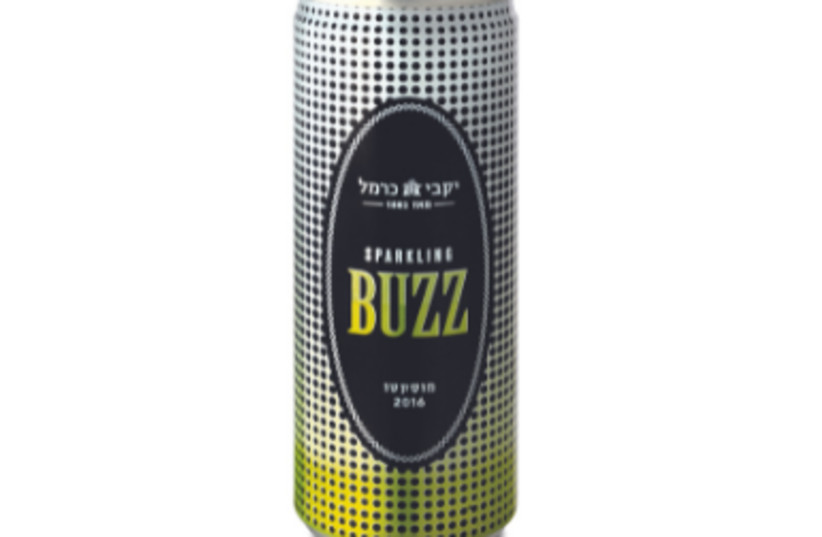
THE FIRST wine in a can in Israel was the Carmel Buzz Moscato in 2017. One would think it was an ideal wine to put in a can, but maybe the look and anemic launch were not good enough, because it is no longer made. It disappeared as quietly as it was launched. The marketing was just not good enough.
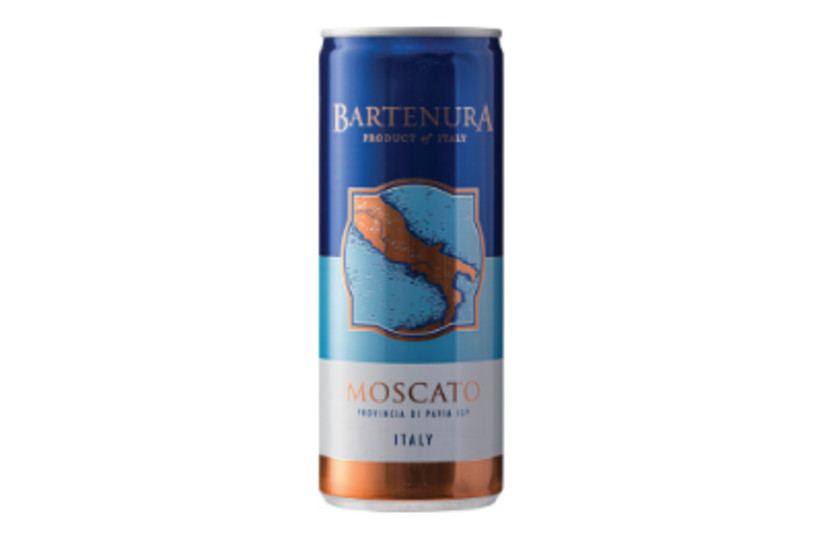
Bartenura went into cans soon after with the same product, a Moscato, but here the approach and quality were immeasurably better and the marketing was far more professional. Bartenura Moscato is the largest brand of Moscato produced in the Asti region of Piedmont. It is also arguably the largest selling kosher brand worldwide, outside the iconic kosher kiddush wines, like Manischewitz. It is the authentic taste of the Moscato d’Asti made from the Muscat Canelli grape variety, also known as Muscat de Frontignan or Muscat Blanc a Petit Grains. Bartenura was the first to sell in the iconic blue bottle and what you get in the can is the same as the bottle. The wine is grapey, lightly sparking, full of frothy flavor and sweet. As it is low alcohol (5%), some countries will not even categorize it as a wine. This should be served ice cold. Those who do not normally like wine will adore it. There is also a rose, which is slightly higher alcohol (7%) and less sweet, but also less full-flavored. They both cost NIS 20 for a 250 ml. can and NIS 70 for a pack of four. They are kosher. It is the only can that is a well-known, existing brand.
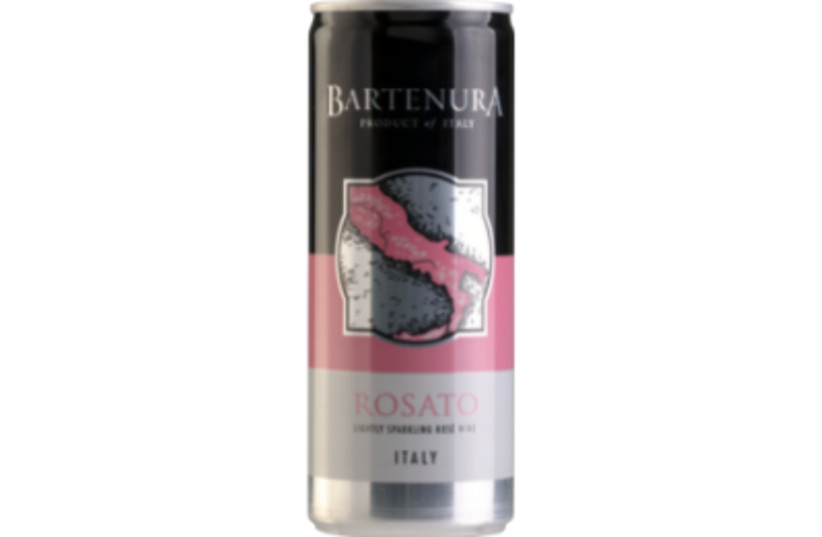
Quiet pioneers in our industry are the company DeVine. They provide a great service, without unnecessary noise and marketing fluff. They introduced the concept of a wine club to Israel, using the iconic Direct Wine – Laithwaite concept for inspiration. They offer interesting selections by regular gift boxes to consumers eager to expand their horizons, who are looking to learn and be led. Imitation is the sincerest form of flattery and their initiative has been copied by others. Anyway, they are marketing a canned brand called Private Beach in Israel. It is beautifully and stylishly packaged and focusing on the two trends of today, rose and sparkling, in one product. The wine is dry, frizzante, onion skin-colored rose, 10.5% alcohol and it is also Italian. Nice and easy drinking. It costs NIS 69 for a four-pack, but note the cans are only 200 ml. Not kosher.
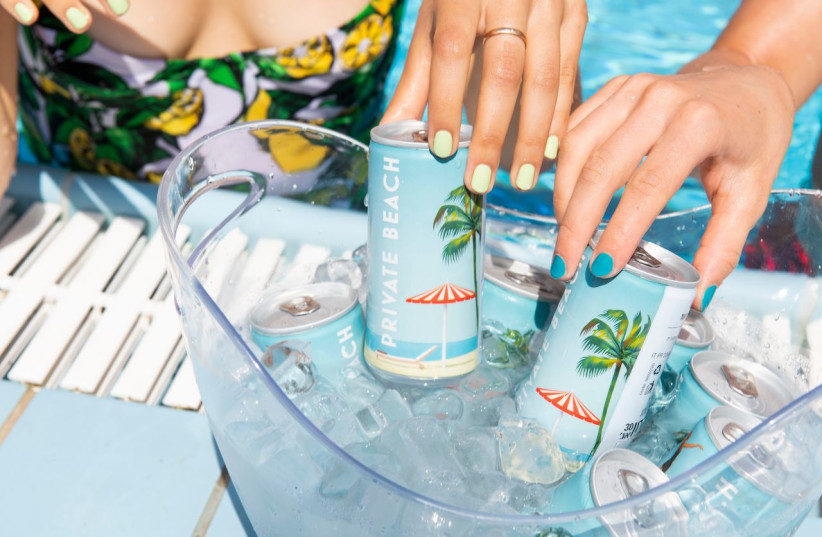
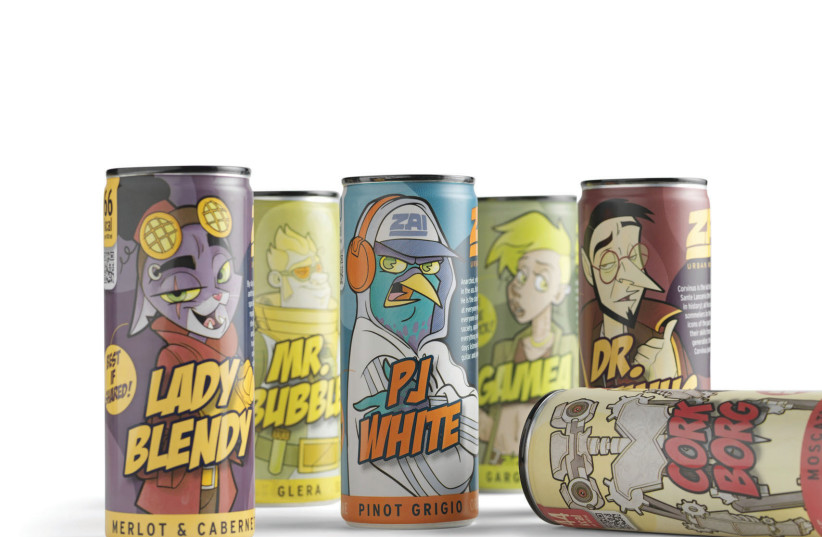
Whenever there is a new trend, the importer-retailer-distributor Shaked normally leads the way or is not far behind. They are arguably Israel’s leading wine importer. They have also imported cans. These are produced by a company called the Zai Urban Winery, from Verona in Italy. Zai Winery’s love of comics is clear as the cans are illustrated by garish superhero cartoon characters. They fit into a story that is told about the year 2150, where they need to save wine from extinction due to pollution and a lack of care for the environment. The characters include names such as Mr. Bubble, Lady Blendy and Cork Borg. One is referred to as the last sommelier. The wines are organic, low-alcohol, low-calorie and vegan, but not kosher. The word Zai is an acronym of the phrase “Highly Innovative Zone” in Italian. There is a PJ White Pinot Grigio (12% alc), a one-dimensional dry white wine, and Glera Sparkling wine (9.5% alc). Glera is the grape variety of Prosseco. The wine is fragrant and bubbly, but not especially flavorful. Lady Blendy Merlot Cab (11% alc) is a light blend. It is the only red. My advice is to drink it chilled and quickly. Cork Borg Moscato (7% Alc) is not as aromatic or typical as the Bartenura. The cans sell for NIS 20 each and NIS 60 for four 250 ml. cans. Not kosher.
MOST INNOVATIVE is the concept Drink Mine, which is a new Israeli start-up. It is a joint venture between Roy Itzaky, Gal Zohar and Amnon Illuz. Roy Itzaky is the CEO and founder of Tulip Winery, Maia Winery and the Adom Kehe importer-distributors. He is a most impressive person – intelligent, innovative, dynamic and always ahead of the game.
It was not a surprise when I heard he was involved. Sommelier-educator Gal Zohar, is one of only a handful of Israelis to have a WSET diploma, and he represents the WSET in Israel through his W Wine & Spirits School. It is the leading place for wine education in Israel. He immediately gives the project credibility. Amnon Illuz is a graphic designer, owner of Re-Levant Design. His talents are obvious to anyone observing the outstanding, innovative Mine campaign on social media.
In the presentation pack I received the pack of four cans, with a wine bottle opener. On the opener was written: “For your Dad!” – implying you drink as young people do, leave the glass bottles to the old fogeys. The wines are kosher and there are two to choose from, white and rose, both 11% alcohol. I preferred the white. It is lightly sparkling, refreshing and dry, with a nice CO2 bite on the finish. Not much aroma, but this is not important with cans. The price for a four-pack is NIS 60 and NIS 16-18 for an individual can of 250 ml. and they are kosher. Their brilliant social media advertising campaign is creating this new category.
It seems even wrong to taste these cans like regular wines, because they are mood wines for drinking at the appropriate time. Of course, the concept receives the expected knee-jerk opposition from the wine intelligentsia, though no one is suggesting we should put Chateau Lafite or Castel Grand Vin in cans, or that they are suitable for a formal dinner. Yet there is no doubt canned wine is one of the fastest-growing wine categories worldwide. In Israel it is just a tentative dipping one’s toe in the water. However there is no reason these should not become the new norm for outside wine drinking. Think of wine in a can on the beach, in the pool, at a picnic, in the kiosk fridge or at a party – even in the vineyard. A heavy glass bottle is never the ideal partner for outdoor events. I believe the initiative makes wine more accessible.
Those horrified by the idea are not forced to join the party. Yet young people or people young at heart, who are open to enjoy wine without a long-tasting note and a lot of blah blah, will find wine in the can provides new options.
Hopefully bag in the box will follow soon!
The writer is a wine industry insider turned wine writer, who has advanced Israeli wine for 35 years. He is referred to as the English voice of Israeli wines. www.adammontefiore.com
